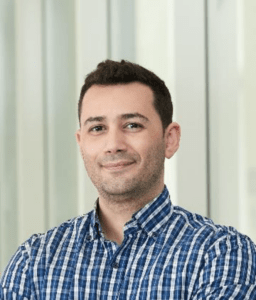Impact loading of 3D printed stochastic cellular materials
 Oraib al-Kheetan
Oraib al-Kheetan
| September 13th 2022 – 11 am, NYUAD C1 (ERB) -045 |
Lattice-mimicking structures exhibit promising mechanical and physical properties that are particularly interesting in applications where energy absorption plays a crucial role. For example, defense, crashworthiness, and sport protective equipment. However, they also exhibit highly anisotropic properties where the response to loading is direction-dependent. In this work, a design procedure to create shell-based stochastic cellular materials based on implicit functions is presented. The isotropy of the proposed cellular material is first investigated via Finite element analyses (FEA). Powder bed fusion additive manufacturing was employed to fabricate several samples with a range of relative densities using 316L Stainless Steel powder. The fabricated metallic stochastic samples were investigated for their compressive mechanical properties under quasi-static (0.001 s-1 ) and impact loading (up to 25,000 s-1 ). Results showed that the stochastic cellular materials exhibit isotropic properties when using nine control points and more. The experimental results showed a change in deformation mode at different testing velocities. The current study opens the doors for further investigation of metallic stochastic cellular materials and their deployment in defense and transportation applications.
Speaker’s Bio
Dr. Al-Ketan is currently leading the Advanced Manufacturing Core within the Core Technology Platform at New York University, Abu Dhabi (NYUAD). His research focuses on investigating the interrelationship between materials, geometrical features, fabrication process, and mechanical properties of additively manufactured lattices and composites using different materials, fabrication techniques, and length scales. Also, Dr. Al-Ketan’s research focuses on the application of additive manufacturing in different engineering disciplines. Prior to joining NYUAD, Dr. Al-Ketan worked as a Post-Doctoral Fellow at Khalifa University of Science and Technology Abu Dhabi, UAE, from which he also received his Ph.D. degree in Interdisciplinary Engineering with a focus on Additive Manufacturing. In 2021, Dr. Al-Ketan was ranking among ‘Stanford’s top 2% Scientists for Single year citations’ category.

